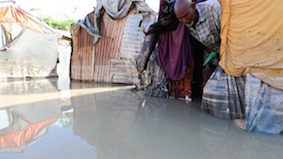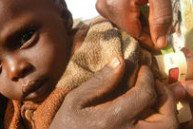East Africa devastated by floods, emergency appeals launched

Source: Fides/Caritas Kenya
Vast swaths of territory are under water in the Horn of Africa. Heavy rainfall, caused by increased temperatures in the Indian Ocean has affected parts of Kenya, South Sudan, and Somalia, causing widespread flooding and destruction.
Kenya
Flash floods killed at least 29 people in Kenya last week, according to a government minister. Nearly 12,000 people have been displaced, especially in the northern and eastern parts of the country. The agriculture industry was also hard hit, with over 10,000 livestock animals killed by the flooding.
One weather forecaster told local media that more rain fell in 10 days than is normally recorded over the whole rainy season, in one area near the border with Ethiopia.
Caritas Kenya has begun an appeal for food, first aid supplies, and a collection of funds to distribute to those in need.
South Sudan
Bishop Stephen Nyodho Ador Majwok, of Malakal, has called on South Sudan's government to declare a state of national disaster to deal with massive flooding. He said nearly 283,000 square kilometres of his diocese is under water.
Rains have devastated vast areas of South Sudan since July, according to a recent United Nations report.
The wet weather has made the humanitarian situation worse in 32 counties, where more than three million people were already in need of assistance.
Somalia
In Somalia, more than 182,000 people have been forced to flee their homes due to flooding. The UN says most of those affected are from the central town of Beledweyne, where three people drowned last week. Another 10 people died on Monday when a rescue boat capsized, leaving up to 20 others missing.
Forecasters say East Africa's rainy season, which runs from October to December, is likely to be unusually wet this year. Increased water temperatures in the Indian Ocean is leading to higher rates of evaporation, a process known as Indian Ocean Dipole. That atmospheric humidity is then dumped inland as rainfall.


















